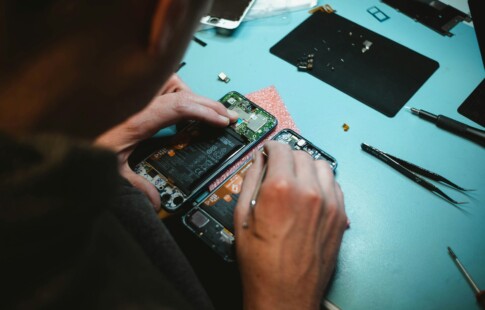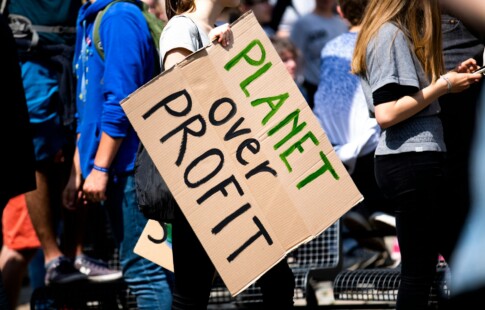
Where to Take Plastic Bags for Recycling Near Me
We are reader-supported. When you buy through links on our site, we may earn affiliate commission.
Every town, county, and country has different recycling policies. The lack of standardization can make the process of knowing where to put waste confusing. If you need to know where to take plastic bags for recycling nearby, there are numerous sustainable options you may not even be aware of in your area.
Why Recycling Plastic Bags Is Important
Over five trillion plastic bags are used every year worldwide, resulting in about 700 bags per person. With the number of bags in circulation, you would think they would be easy to recycle. In reality, less than 1% of bags are properly recycled and reused. Here are other statistics about plastic bags that may inspire you to look more into recycling options:
- The average bag gets 12 minutes of use.
- They are made with polyethylene, which takes over 1,000 years to break down.
- 10% of bags go into the ocean instead of landfill.
- By 2050, there could be more plastic bags than fish in the oceans, with many being inside other species that have accidentally consumed it.
Recycling gets a bad reputation, especially when not everything that has a recycling symbol is easily recyclable. However, it is still worth it, especially when it comes to plastic bags. The number of microplastics in them alone make them a high value recycling venture with minimal effort. Additionally, there are more options around than you might think.
What Is Better for the Planet — Paper, Plastic, or Neither?
Plastic bags get a lot of bad press because of how polluting they are. They easily float and fly, spreading all over the world and reaching places they should never have gotten. Many activists suggest reusable tote bags. Retailers are trying the classic brown paper bag and potentially charge a fee for how many a customer buys. The charge acts as a reminder to bring your own bags in the future.
What is the most sustainable option when you look at resource use and recyclability?
Plastic bags became as popular as they are today because they are resource-efficient. They are also incredibly lightweight, making them easy and cheap to transport in large quantities. Sourcing and processing paper bags uses 2.2 times more energy and 4.7 more water than plastic. Paper has more recycling points than already-made plastic bags.
When it comes to cotton or plastic totes, their value increases with every use. They use even more resources than paper bags to make. So, if someone only uses a tote a few times before getting rid of it, it is more taxing on the planet. In this way, a plastic bag would be better if it gets recycled, instead of a plastic or cotton tote heading to landfill after only a handful of uses.
Where to Take Plastic Bags for Recycling Near Me
So, learn where to take plastic bags for recycling near you, though not all of these options may be available in your area. Experiment until you find something to incorporate into your routine that works for you.
Store Drop-Off
You’ve probably seen labeled bins outside of most large grocery stores. Retailers like Kroger, Target, Walmart, and more may have plastic bag recycling bins inside or outside each location. There are tons of online tools to input your ZIP code to find the closest one to you. Start getting into the habit of bringing bags with you when you get your grocery list together.
Curbside Recycling
Plastic comes labeled based on its composition. You’ll likely recognize numbers one and two, but they go all the way up to seven. Most curbside accept some variation of them, but most plastic bags are labeled two or four, making them inconsistently recyclable depending on the area. You will have to check with your local area to see what kinds of plastic they accept and in what condition. For example, Fairfax, Virginia tells citizens to keep plastic bags out of curbside.
For example, plastic bags some in many different colors, typically white or gray, but sometimes in black, green, or a medley of others. These coatings could be unrecyclable dyes, so some areas may have rules on what color of plastic bags they accept. You should always read the fine print for any recycler. If you recycle incorrectly, it could disrupt operations and make recycling less effective in your area.
Recycling Drop-Off
If you don’t have curbside, some counties have drop-off bins instead that look a lot like conventional dumpsters. They are labeled with what they accept. Some areas set up like this may have separate, smaller bins for more specific objects, like batteries, ink cartridges, and plastic bags.
Send to Other Companies
New recycling and upcycling initiatives appear all the time. One of the most recognizable is Terracycle, which sends households and organizations boxes to fill with a specific object. Then, customers send the box back to them for reuse. In fact, this is what many stores, including some Kroger locations, use to gather bags in their stores.
Tips for Plastic Bag Reuse
If you unfortunately do not have any accessible options near you, here are the best ways to reuse your bags to make them as environmentally friendly as possible.
Throwing empty bags in the trash can is dangerous. When trash bags rip, they easily fly away. It is best to weigh the bags down first. If you have pets, use them for a little box or waste when taking animals for a walk. This makes the bag more likely to stay in landfills once it gets there instead of cross-contaminating in other habitats.
You can also use them as cushioning for when you ship fragile packages. Fold the grocery bag several times to construct makeshift bubble wrap. Can you think of any other creative ideas for ways to get the most out of plastic bag before it goes into the trash?
Getting More Plastic Bags Recycled
Plastic bags are being ingested by whales and wrapped around turtles. You likely see them every time you go outside, and they get caught up in your car tires. If you have plastic bags, attempt to recycle them in local recycling bins or at grocery retailers.
Other options may exist to ship them to organizations that use them for upcycling, though these are few. Never stop researching the possibilities, because more inventions and ways to use them come up every year.
Share on
Like what you read? Join other Environment.co readers!
Get the latest updates on our planet by subscribing to the Environment.co newsletter!
About the author

Steve Russell
Steve is the Managing Editor of Environment.co and regularly contributes articles related to wildlife, biodiversity, and recycling. His passions include wildlife photography and bird watching.





